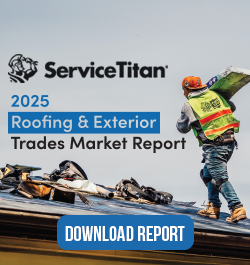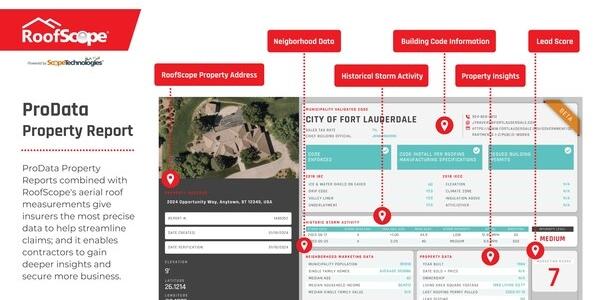How roofing code knowledge helps set pros apart
June 18, 2025 at 6:00 p.m.By Lauren Miller, JobNimbus.
Understanding roofing codes helps you raise the bar in your business and the industry and ensures home and building owner safety with every roof you build.
Every nail you drive and shingle you place is an opportunity to build trust, protect lives and strengthen your brand. Roofing codes aren’t obstacles; they’re the industry’s blueprint for excellence. By knowing and applying them, you prove your commitment to safety, quality and professionalism. Whether you're a seasoned contractor or just starting out, mastering roofing codes with the help of JobNimbus isn’t just smart, it’s how top roofers lead the pack.
What are roofing codes?
Roofing codes are regulations, standards and guidelines that outline proper roofing system installation and repair.
Contractors are required to follow roofing and other building codes. Roofing codes are usually a subset of broader building codes and the specific roofing requirements can vary by location, building type and other factors.
Check your state or city government website or the International Code Council to find your local roofing codes.
Examples of roofing codes
Fires, tornados, earthquakes, hurricanes and other natural disasters can damage buildings and roofs. Roofing codes may differ from state to state to address specific disasters.
Hurricanes
In a landlocked state, you likely wouldn’t see additional roof codes for hurricane consideration. But in Florida, it makes sense to have hurricane roof codes.
As a result, Florida has some of the strictest building codes in the U.S. Since 1880, more than 270 named storms have hit Florida — more than any other state.
Fires
Fires are a risk for structures regardless of location. Most roof codes require measures to lower fire risks, such as using fireproof or fire-resistant materials.
Wind
Wind considerations are also important. Strong gusts of wind can threaten any structure, so roofs must be built to handle strong winds.
Why roofing codes are important
Roofing codes ensure that homes and buildings are safe and meet industry standards.
Without rules and regulations, shoddy workmanship on structures could run rampant without consequences. As a roofing contractor, your reputation is crucial for your business’s success.
As a roofer, you should know and understand roofing codes because they guarantee your work meets industry standards, promote safety and protect both you and your clients from potential risks.
Customers likely won’t trust contractors who aren’t familiar with local regulations to work on their homes. Being well-versed in roofing codes helps you stay competitive in your market.
How to stay roof-code compliant
Staying compliant with roofing codes is an ongoing process. It requires diligence, knowledge and dedication. Here’s how contractors can stay compliant with roof codes.
- Consult local codes: Understanding and adhering to local roofing codes is essential! As a roofing contractor, you need to comply with local regulations to ensure the success of your project.
- Stay updated: Roofing codes are subject to change over time. As technologies, materials and safety standards evolve, roofing codes will be updated to reflect these changes. Be sure to stay updated on the latest roofing regulations required in your area.
- Follow best practices: Adhering to industry best practices ensures you deliver high-quality work for your clients. Customers prefer contractors who meet or exceed industry standards.
Set yourself up for success
You should always research local roofing codes before beginning a roofing project. It’s important to be ready for the job to prevent mistakes.
Similarly, it’s crucial to ensure you have the right tools for your business. Roofing software can transform your business by enabling efficiency and promoting growth.
Original article and photo source: JobNimbus
Learn more about JobNimbus in their Coffee Shop Directory or visit www.JobNimbus.com.























Comments
Leave a Reply
Have an account? Login to leave a comment!
Sign In